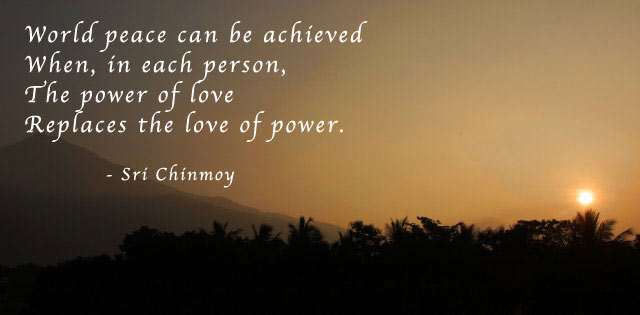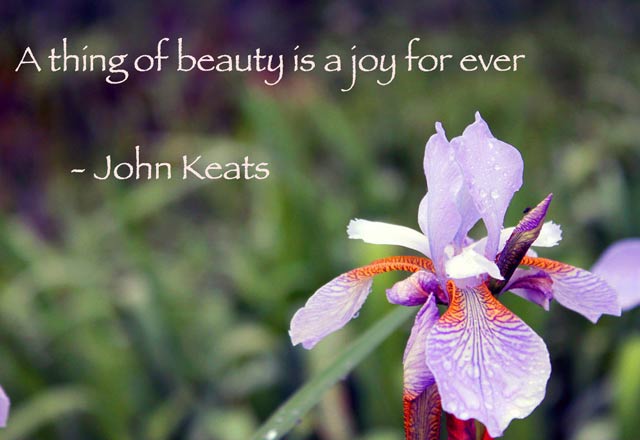
When I was young, my very limited religious instruction suggested to me religion was a matter of faith – the belief in things you couldn’t actually see.
I never really understood this concept of faith. To my mind, I reasoned why should we believe things that we can’t see? Why should we believe things which we don’t know whether they happen? There was a time when I believed faith seemed to be a clever way of getting people to believe in things that don’t really exist. Without too much thought, I just drifted away from religion to aspects of life which had a more immediate reality.
But, at a later day, I gained an interest in meditation and spirituality. I never approached it from a perspective of faith; the great attraction of meditation was that it offered the chance to actually experience spirituality – and not just about holding an intellectual faith. Meditation didn’t require a belief in things you couldn’t see or believe in; it was simply offering you the opportunity to see and experience for yourself.
Meditation was an interesting journey. There were glimpses of an ethereal peace and joy unknown in the world. The glimpses were never enough or as frequent as I would have liked, but there was definitely something. Even just 30 seconds of one profound experience of meditation stays with you throughout your life. Once, your consciousness has been turned on its head you can never doubt there is really another reality beyond the world. Sri Chinmoy writes:
“What you call Faith I call the Soul’s foreknowledge of the Highest Truth” [1]
This is the intuitive feeling you can get from meditation, you come to be aware of the soul and its latent capacities.
After a few steps along the path of meditation, I found it natural and spontaneous to believe in ideas I had previously summarily dismissed. The idea of God-realisation, reincarnation, liberation. The world no longer seemed a question of matter and the human mind, but of the spirit and the soul.
Long after I had forgotten about my rejection of ‘religious faith’ I realised that my teacher, Sri Chinmoy frequently wrote poems about the importance of faith – faith in yourself, faith in your Guru, faith in God.
This time, faith seemed rational, it also seemed important. One day, you could have the greatest meditation, the next day, you might start to think there’s no point in striving to reach higher goals. If you are not vigilant, the excuses and complaints of the mind can cloud your previous soulful experiences. So you always need to maintain this faith, this remembrance of your own meditation, the remembrance of your soul’s foreknowledge.
But, without some inner discipline and practice, it’s hard to maintain faith in higher ideals.
The poet, Emily Dickinson wrote:
“Faith†is a fine invention
For Gentlemen who see!
But Microscopes are prudent
In an Emergency!
To me, the microscope is meditation, and spiritual writings which seem intuitively true. Faith without spiritual practice becomes a mere intellectual hope. Faith strengthened my meditation and prayer reminds you to have faith in your soul and God.
In the beginning of the spiritual life there is an element of give and take. We say to God, give us a little experience, and we’ll believe a little more. The truly great seekers are those who don’t have any concept of give and take, but implicit 100% faith; there is no expectation only cheerful surrender.
Yet, for those who worry about approaching the spiritual life lacking in faith, it may be worth remembering the words of Sri Aurobindo:
” When I approached God at that time, I hardly had a living faith in Him. The agnostic was in me, the atheist was in me, the sceptic was in me and I was not absolutely sure that there was a God at all. I did not feel His presence. Yet something drew me to the truth of the Vedas, the truth of the Gita, the truth of the Hindu religion.”
– Sri Aurobindo The Uttarpara Address (1909)
Related
[1] Excerpt from Rainbow-Flowers by Sri Chinmoy.
photo, Tejvan, Sri Chinmoy Centre Galleries.














